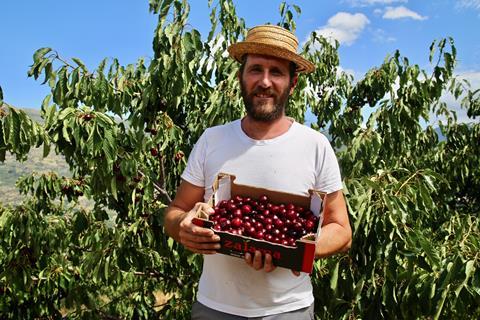Veryan Bliss, advisor to EU’s ‘More Than Only Food & Drink’ campaign, tells FPJ how the initiative aims to bolster demand for European produce in UK

What are the key messages and goals of the campaign?
‘More Than Only Food & Drink’ is a dedicated communication campaign to champion the outstanding qualities of EU food and beverage products to UK food industry professionals. It highlights the continent’s food safety, quality, authenticity, and sustainability credentials. The project has been developed to further strengthen awareness and appreciation among UK food businesses of the key characteristics that make EU food and beverage products stand out from other sources.
The awareness drive will focus specifically on six product categories, including fresh and frozen fruits and vegetables. Rather than focusing on specific fruits and vegetables, the campaign is highlighting best practice across the EU’s member states to showcase the quality and safety of EU produce, as well as the ambitious sustainability targets the EU is working hard to meet.
Brexit has increased the cost, complexity and time involved in importing fresh produce from the EU. How can this be mitigated?
Planning and partnerships are absolutely key. It is critical that product programmes are planned in good time, and the same goes for seed. If seed needs to be imported, this can take up to six weeks, whereas pre-Brexit, it could be delivered within 48 hours. This delay is causing significant challenges for propagators and producers.
Difficulties arise when many different suppliers of various products use one set of transport (groupage). So, if one of those products has incorrect paperwork, then the whole vehicle could be held up for inspection. This creates significant delays for everyone with product on the vehicle.
My advice is to use experienced freight forwarders and customs clearing agents that are familiar with post-Brexit regulations. They can help ensure all paperwork is correctly filed and that shipments are compliant with both UK and EU regulations.
How can EU production countries maintain or improve their position in the UK market amid rising competition from countries such as Morocco?
EU production countries must maintain their point of difference by being nimble and providing a point of difference with high-quality, flavoursome, and fresh product. They should provide not only entry point products, but a portfolio covering the requirements and expectations of UK consumers. They must capitalise on their proximity to the UK for freshness of deliveries.
From a government perspective, it is essential that sufficient product inspectors are available in both the UK and Europe when needed to ensure that checks and paperwork can be completed efficiently and in a timely manner. This ensures the safety, integrity and quality of the products is maintained. Products stopped for checks at the border must be swiftly assessed and released.
It is worth noting that EU countries don’t operate quotas when supplying the UK, which can be impactful from both a volume and a cost perspective.



